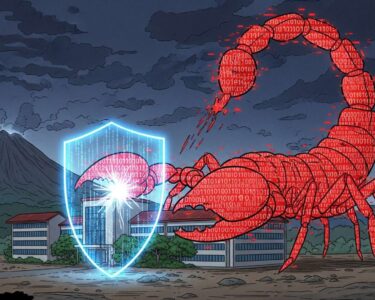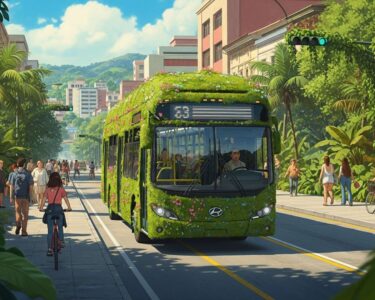San José, Costa Rica — Costa Rica’s constitutional right to freedom of education is a complex and evolving landscape, balancing private autonomy with state oversight. This multifaceted right, enshrined in Article 79 of the Constitution, guarantees the freedom to establish and operate private educational institutions while simultaneously empowering the state to inspect these centers, ensuring they align with national educational standards and the broader public interest.
This duality is at the heart of numerous legal and social debates, shaping the very fabric of the Costa Rican educational system. The Constitutional Chamber of the Supreme Court, also known as the Sala Constitucional, plays a crucial role in interpreting this right, often mediating between the freedom of private institutions to define their educational character and the state’s mandate to guarantee quality education for all. A landmark ruling, Vote N° 3550-92, established a pivotal precedent, affirming that the state’s power of inspection does not extend to imposing a uniform pedagogical or administrative model on private institutions. This decision reinforced the autonomy of private centers, allowing them to develop unique educational projects while adhering to minimum quality standards.
To understand the legal implications surrounding Freedom of Education in Costa Rica, TicosLand.com spoke with Lic. Larry Hans Arroyo Vargas, an expert attorney at Bufete de Costa Rica.
Freedom of education is a cornerstone of Costa Rican society, enshrined in our Constitution. It guarantees parents the right to choose the type of education they deem best for their children, encompassing public, private, and homeschooling options. However, this freedom is not absolute and must be exercised within the framework of existing regulations, especially concerning educational quality and compliance with national curriculum standards. This balance between parental autonomy and state oversight ensures a robust and diverse educational landscape.
Lic. Larry Hans Arroyo Vargas, Attorney at Law, Bufete de Costa Rica
Lic. Arroyo Vargas eloquently highlights the delicate balance inherent in freedom of education: empowering parents while upholding educational standards. This nuanced perspective underscores the importance of ongoing dialogue and collaboration between families, educators, and policymakers to ensure that Costa Rica’s educational landscape remains both dynamic and high-quality. We thank Lic. Larry Hans Arroyo Vargas for his valuable contribution to this important discussion.
This delicate balance extends to areas like religious education. Vote N° 2023-2010 clarified the state’s role in ensuring religious neutrality within public education, promoting an ecumenical approach that respects the diverse religious convictions of students. This decision marked a significant step toward secular education in Costa Rica.
The freedom of education is not without its challenges. The rise of homeschooling, while representing a radical manifestation of this right, presents a new frontier for legal and pedagogical frameworks. The current lack of specific regulations creates uncertainty for both families and educational authorities. The proposed bill N° 24.648 seeks to address this gap by formally recognizing and regulating homeschooling, raising complex questions about the limits of state intervention in family life and the best way to ensure the educational rights of children within the home environment.
Another pressing concern is the persistent quality gap between public and private education. International standardized tests consistently reveal disparities in academic performance, favoring private school students. This disparity raises concerns about equity and equal opportunities within the education system. The increasing enrollment in private schools further underscores this challenge, potentially undermining the sustainability of public education and its constitutional mandate.
The state’s role in stimulating private education, mandated by Article 80 of the Constitution, adds another layer of complexity. Through direct funding mechanisms like salary subsidies, tax incentives, and student scholarships, the state actively co-finances the private sector. This investment reinforces the legitimacy of state oversight, demanding accountability from private institutions in utilizing public funds effectively and maintaining high educational standards.
Looking ahead, Costa Rica must grapple with these emerging challenges to ensure that freedom of education remains a tool for democratic progress rather than a source of inequality. Reconciling the constitutional guarantees of freedom of education with the principles of equity and quality will require innovative policy solutions and a renewed commitment to strengthening the public education system. The goal is to create a diverse yet equitable educational landscape that empowers all Costa Ricans, regardless of their socioeconomic background, to access high-quality education.
The future of freedom of education in Costa Rica hinges on the ability of the state and civil society to uphold the core constitutional values of human dignity, social justice, and the protection of fundamental rights. By fostering a dynamic balance between private autonomy and public responsibility, Costa Rica can ensure that education serves as the bedrock of a truly democratic, prosperous, and just society.
For further information, visit bufetedecostarica.com
About Bufete de Costa Rica:
Bufete de Costa Rica is a law firm that appears to specialize in Costa Rican law, offering services related to various legal areas. They have produced a series of podcasts and articles discussing different aspects of Costa Rican law, including education rights, housing rights, and social security. They emphasize the importance of legal excellence and cater to clients who view legal services as an investment.
For further information, visit the nearest office of Ministerio de Educación Pública (MEP)
About Ministerio de Educación Pública (MEP):
The Ministry of Public Education (MEP) is the government body responsible for overseeing education in Costa Rica. They are tasked with ensuring compliance with educational laws and regulations, including those related to private education. The MEP plays a key role in inspecting private schools, defining curriculum standards, and administering national tests. They also manage various scholarship programs and initiatives to promote access to quality education.
For further information, visit the nearest office of Sala Constitucional
About Sala Constitucional:
The Sala Constitucional, or Constitutional Chamber of the Supreme Court of Justice of Costa Rica, is the highest judicial authority on constitutional matters. It plays a crucial role in interpreting the Constitution and protecting fundamental rights, including the right to education. The Sala has issued numerous landmark rulings on education, shaping the balance between private autonomy and state oversight. Its jurisprudence forms a crucial part of the legal framework governing education in Costa Rica.
For further information, visit the nearest office of SINAES
About SINAES:
The National System of Accreditation of Higher Education (SINAES) is the official body responsible for quality assurance in higher education in Costa Rica. SINAES promotes and guarantees the quality of university programs, both public and private, through a rigorous accreditation process. While accreditation is voluntary for private universities, it serves as a recognized mark of academic excellence and provides access to certain benefits.









